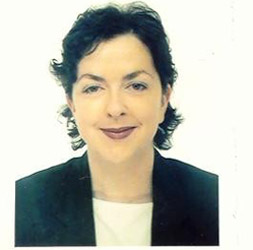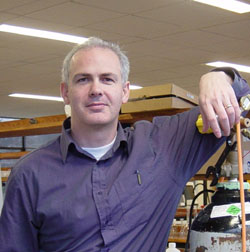| 2003 |

|
YEAR BOOK |
Irish Research Scientists' Association
|
10th anniversary of the Irish Research Scientists' Association - Historical perspective
|

|

|
This year we will celebrate the 10th anniversary of the foundation of the IRSA. The Association was founded in May of 1993 in response to the then Government's stated policy of eliminating expenditure on basic research. IRSA drew the attention of both the national media and the international scientific media to the impending disaster. In response to this coverage, combined with a letter writing campaign, the former Minister, Mr Seamus Brennan, reversed the cuts decision. The level of funding allocated to this scheme has been increased, to a large extent due to pressure from IRSA and its members, and in 2002 was of the order of �16,000,000.
In 1994 IRSA was instrumental in establishing the Science, Technology and Innovation Advisory Council. This Council made its report to Government in 1995 and set the ball rolling for many of the improvements evident in research in Ireland today. In 1996 the Government published its White Paper on Science, Technology and Innovation. This white paper laid out what Government policy in relation to S&T would be over the next 15 to 20 years. Since then, IRSA has advocated implementation of the policies in the White Paper. For instance, IRSA has been centrally involved in highlighting the need for increased and sustained investment in our research base. IRSA can justifiably claim some credit for the welcome decision to establish the Irish Research Council for Science, Engineering and Technology, and Science Foundation Ireland. IRSA is also involved in many other activities that promote a greater awareness of science and scientific issues both among the general public and among our legislators (see below). At present IRSA is a strictly voluntary Association with no income other than that from its members. It is not allied to any political party and seeks only to represent Irish researchers.
IRSA Membership
Within IRSA there are five types of membership: The first is open to practising scientists on the island of Ireland; the second is open to Irish scientists or other interested scientists working overseas (members are drawn from 17 countries overseas); the third is an Institutional Associate Membership open to any research institute that shares the aims of IRSA; the fourth is a Corporate Associate Membership similar in design to the Institutional Membership; and the fifth is a student membership open to students of any discipline.
So far, the first two schemes have been outstandingly successful with about 700 members and about 10% overseas members. The Association sends out regular electronic updates to members. These updates have a distribution of about 600 - including all our members, politicians, industrialists and senior civil servants. They are distributed to about 90% of members and are designed to keep the majority of the membership in touch with what is happening in their association. They are also used as a means for members to pass notices (about forthcoming events, about positions or services they might have to offer etc.) to other members.
At present the activities of the association are co-ordinated by a committee of researchers from many disciplines in many institutes around the country. There was a full time Executive Secretary, funded through a grant-in-aid from the Office of Science and Technology, during the mid-1990s. Unfortunately this funding was not continued, and the day-to-day running of the Association is effectively administered through the Association Chairperson.
IRSA objectives for 2003
According to its constitution, IRSA has a series of objectives. These are:
-
To foster scientific research, both basic and applied
-
To encourage the proper appreciation of science in the community
-
To create an awareness of the importance of science and scientific research for the technological, industrial and cultural life of the country
-
To provide support structures for Irish researchers and to encourage collaborations between researchers and between the research community and industry.
The IRSA exists to promote excellence in scientific research in Ireland, a greater awareness of the role of research in our lives, and Ireland's scientific heritage. IRSA is a voluntary association of individuals and organizations interested in this aim. If you are interested in Irish research, consider joining (see our Web site - www.irish-research-scientists.org ).
In line with the constitution of the IRSA, the key focus areas for 2003 include:
|
1. Summer school 2003
2. Science promotion activities 3. IRSA Sponsored activities - e.g. Music to Make DNA by, an extraordinary musical event to be held during Science Week 4. Proposal for a research trust fund establishing a perpetual fund for research in Ireland 5. Development of a 'Science Sanctuary' 6. Symposium on Science and Society 7. Continued efforts in the area of research policy and funding. |
Contact: Dr Fiona Regan, Chair, Irish Research Scientists' Association,
School of Chemical Sciences, Dublin City University, Glasnevin, Dublin 9;
Tel: + 353 (01) 7005765; E-mail: [email protected] , or [email protected] ; Web: www.irish-research-scientists.org